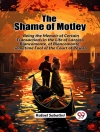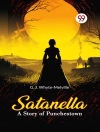In ‘Rasputin the Rascal Monk, ‘ William Le Queux masterfully weaves a narrative that oscillates between thrilling intrigue and historical drama, offering readers a vivid glimpse into the life of Grigori Rasputin, a controversial figure in early 20th-century Russia. The book is characterized by its engaging prose and intricate character development, portraying Rasputin not merely as a shadowy mystic but as a complex man shaped by the tumultuous socio-political landscape of pre-revolutionary Russia. Le Queux’s meticulous craftsmanship and command of pacing create a compelling story that blends fact with fiction, while highlighting the pervasive impact of Rasputin amidst the court’s decadence and a country on the brink of collapse. William Le Queux, an established British novelist and journalist known for his spy fiction and thrillers, drew upon his extensive travels and deep-rooted fascination with Eastern European politics to produce this work. Having lived through an era of great political upheaval and intrigue, Le Queux often found inspiration in the shadowy realms of espionage and secrecy. His firsthand experience in various European capitals allowed him to capture the essence of a world where allegiance and betrayal intertwined. This riveting exploration of Rasputin’s life and influences is highly recommended for readers intrigued by historical fiction that illuminates the human condition. Le Queux’s nuanced portrayal invites the audience to reconsider the notorious figure, providing a thought-provoking perspective on the intersections of power, belief, and moral ambiguity. Whether you are a history buff or a lover of character-driven narratives, this book offers a fascinating blend of both.
लेखक के बारे में
William Tufnell Le Queux was an Anglo-French writer and journalist renowned for his espionage thrillers and contemporary invasion literature, born on July 2, 1864, in London. His works captured public anxiety at the turn of the 20th century about potential threats to the British Empire. Deeply vested in real-world experiences, Le Queux’s extensive travels across Europe and Africa and work as a correspondent influenced the vibrant, if often sensationalized, authenticity found in his narrative style. ‘Rasputin the Rascal Monk’ is testament to this, where he explores the enigmatic figure of Rasputin, combining biographical study with speculative imagination to dissect the influence of this Russian mystic on the Romanov dynasty. His literary style is characterized by an intricate blend of factual reporting and the melodrama of fictional intrigue, often echoing the public’s dread of clandestine foreign plots and cloaked diplomacy. A prolific author, Le Queux penned over 150 books and numerous articles, his most notable works aside from ‘Rasputin the Rascal Monk’ including titles like ‘The Invasion of 1910’ and ‘The Great War in England in 1897’, which played on the geopolitical fears of his era. He passed away on October 13, 1927, leaving a legacy as a forefather of the spy genre in fiction and a purveyor of early 20th-century popular culture’s fascination with mystery and espionage.












